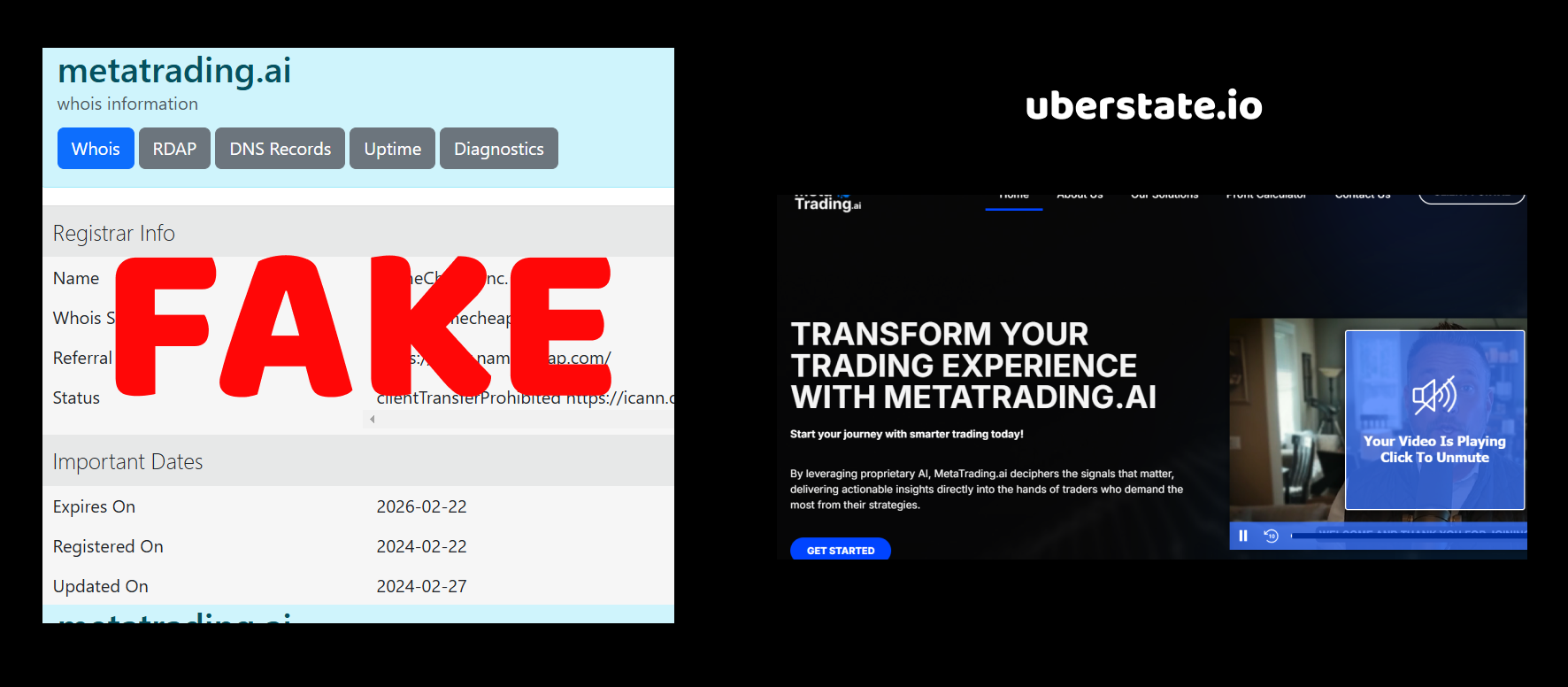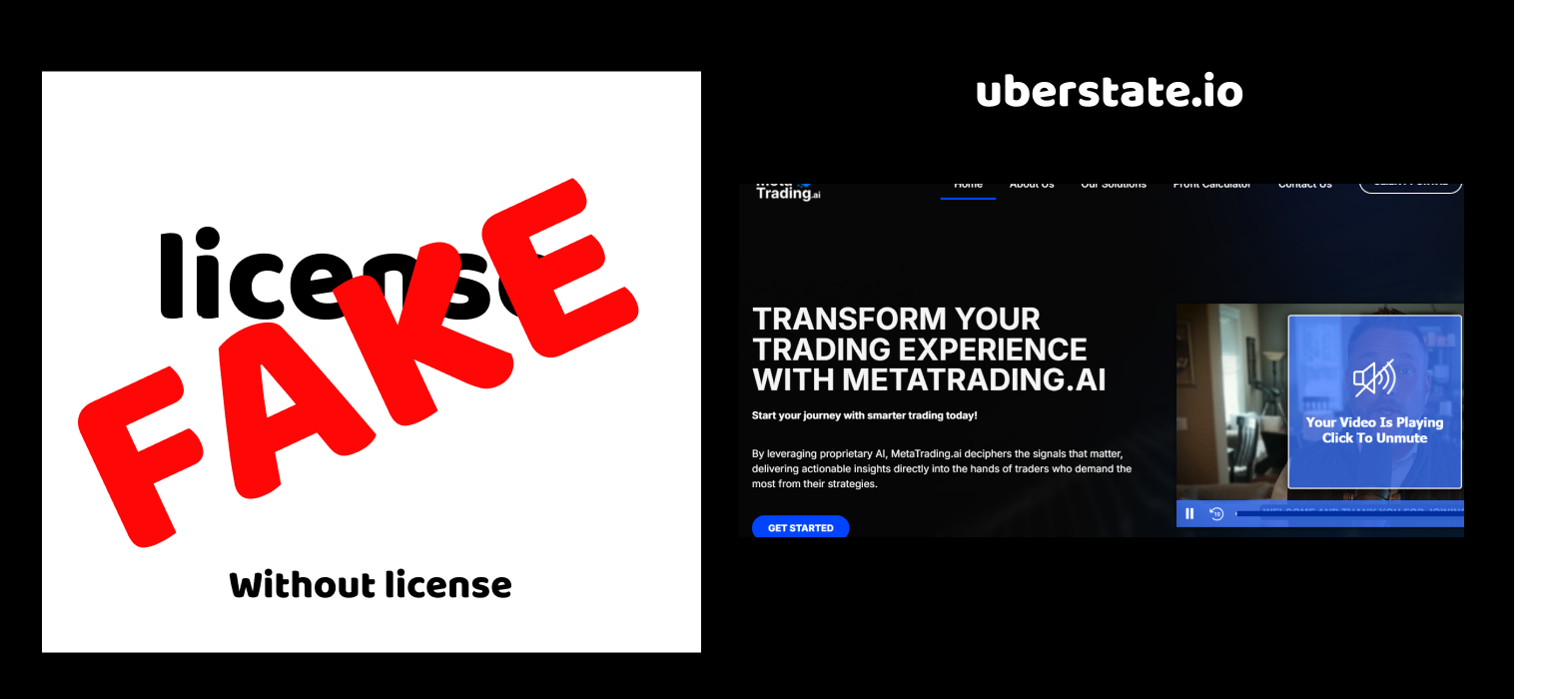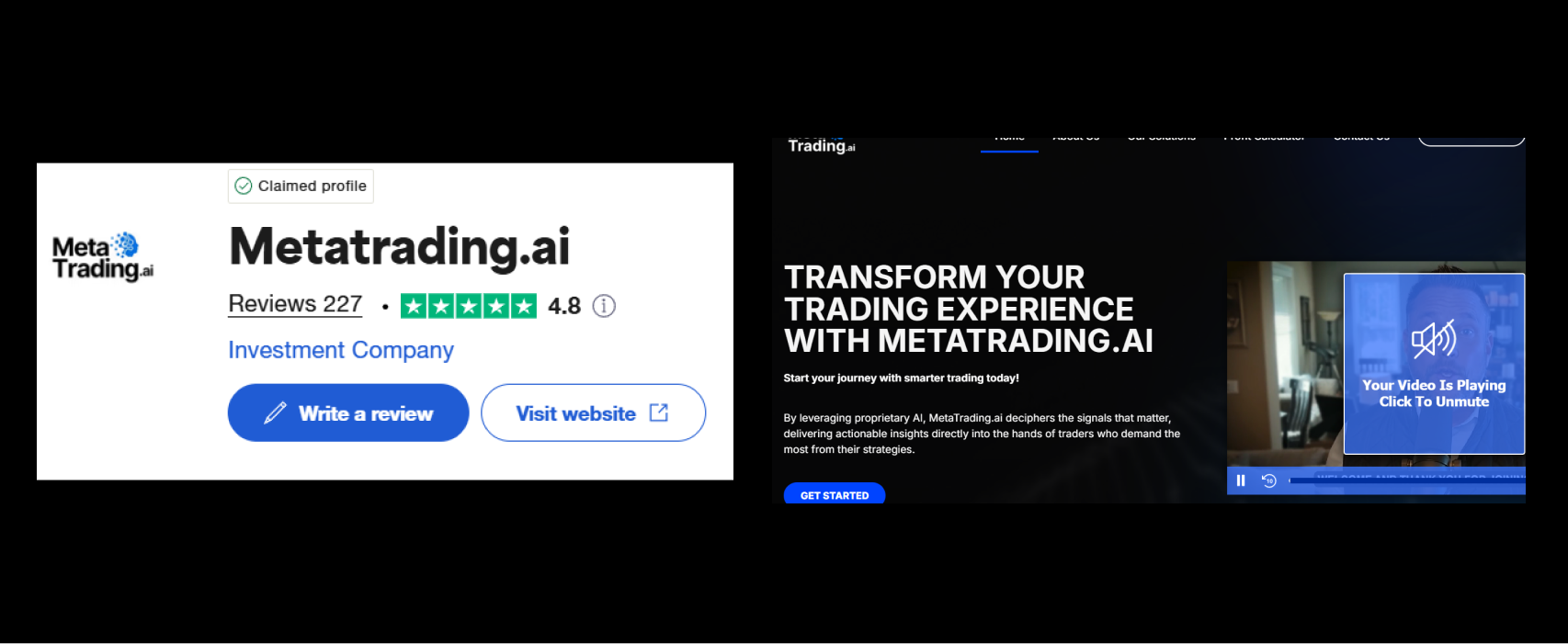Metatrading Review — Is This Broker as Legit as It Pretends to Be?

At first glance, Metatrading tries to sell you the dream — a sleek website, bold promises, and talk of “professional trading services” backed by “years of experience.” But here’s the thing: when something looks too polished, it’s often a setup.
We decided to take a closer look at this broker, step by step — from their domain history to their so-called license, and even what people are saying about them online. And as we peeled back the layers, the cracks started showing. Some of them small and subtle. Others? Alarming.
In this Metatrading brand review, we’re breaking down every element they don’t want you to question. Because if you’re trusting a broker with your money, you deserve to know the truth behind the glossy surface.
| Category | Details |
| Broker Name | Metatrading |
| Website | metatrading.pro |
| Domain Registration | September 22, 2023 |
| Claimed Location | Comoros |
| License Type | Fake — MWALI (offshore, non-reputable, no real regulatory power) |
| Account Types | Standard, ECN, VIP (no transparent conditions provided) |
| Contact Email | [email protected] |
| Phone Number | Not provided |
| Social Media | None verified or active |
| Live Chat | Present on site, likely automated or outsourced |
| Leverage | Up to 1:500 — dangerously high, common among unregulated brokers |
| Trading Platform | Claims to offer MetaTrader (version not specified, no direct access provided) |
Metatrading Brand Review — Argument 1: Domain Creation Date
When we started digging into Metatrading, the first red flag popped up almost instantly. Their domain — metatrading.pro — was registered on September 22, 2023. Seems like just another date, right? But here’s the twist.
On their website, Metatrading tries hard to paint a picture of a long-standing, reliable company. They talk about “years of experience,” “thousands of satisfied clients,” and even claim they’ve been operating since 2018. But how does that timeline make any sense when their domain didn’t even exist until late 2023?
After checking the domain registration through Whois, it became painfully clear — this brand is fresh. So where were all those supposed clients before the website appeared? Were they doing business without a digital presence in the 2020s? Sounds absurd, doesn’t it?
This kind of mismatch between claimed history and actual data isn’t just suspicious — it’s a textbook sign of a scam operation. Real companies don’t need to fake their past. But scammers? They know people are more likely to trust a brand that seems established.
So the real question is: why fabricate the timeline unless you’re trying to manipulate people into thinking you’re something you’re not?

Metatrading Brand Review — Argument 2: License Legitimacy
Once we got past the surface-level promises and flashy website, the next thing we looked into was Metatrading’s regulatory status. Because let’s be real — a license is the bare minimum for any broker claiming to operate legally. But what we found? It raises way more questions than it answers.
Metatrading proudly mentions being “licensed,” but here’s where things get tricky. The license they refer to comes from MWALI International Services Authority, which is based in the Comoros Islands. Sounds exotic — but also completely useless when it comes to actual regulation.
This is one of those so-called regulators that doesn’t provide any real oversight, doesn’t check how client funds are handled, and doesn’t hold brokers accountable when things go wrong. And let’s be honest — that’s exactly the kind of license a scam project would go for. Because why would fraudsters want to operate under strict, real-world financial laws? Why risk being shut down when they can just register under a name that sounds official but means absolutely nothing?
And here’s the kicker: even that fake license can’t be verified properly. There’s no transparency, no access to a public register, and no clear way to confirm the broker is even listed there.
So the question becomes — why not get regulated by a proper financial authority like the FCA, CySEC, or ASIC? Probably because real regulators actually investigate brokers, and scammers can’t afford that kind of attention.
At the end of the day, a license from a non-serious offshore “authority” isn’t a green flag — it’s a glowing red warning.

Metatrading Brand Review — Argument 3: Trustpilot Reviews
After reviewing the website and license, we decided to take a look at what people are saying online — and Trustpilot is usually a good place to start. But in the case of Metatrading, what we found there only confirmed our suspicions.
Their Trustpilot score is below 4, which already tells you things aren’t looking great. But it’s not just about the number — it’s how those reviews are written that really gives the game away.
The so-called “positive” reviews all read like they were written by the same person. Same tone. Same phrases. All of them oddly enthusiastic, robotic even — like someone trying too hard to sound like a happy customer. You won’t find any natural storytelling, any specific experiences, or even minor complaints that real users often include. Just vague praise like “Great broker!” or “Fast withdrawals, professional support!” — phrases that could be copy-pasted to any scam broker page.
And here’s the thing: if a broker really had thousands of satisfied clients, wouldn’t the reviews reflect that? Wouldn’t there be a diversity of voices, different languages, varied experiences?
Instead, it looks like someone sat down and pumped out fake reviews just to inflate their score — but didn’t bother making them look human.
Oh, and the negative reviews? They’re either ignored completely or replied to in a defensive, dismissive tone. A real broker would try to resolve issues — not silence or discredit the critics.
So when the feedback feels scripted and the score can’t rise above mediocre… doesn’t that say it all?

Metatrading Brand Review — Final Verdict
After digging through every corner of Metatrading’s operation, one thing became painfully clear — this is not the kind of broker any serious trader should trust.
Let’s recap what we found. Their domain was registered in late 2023, yet they claim to have been around for years. That’s not just a small inconsistency — it’s a full-blown lie designed to fake credibility. Then there’s the license from MWALI, a regulator that might as well not exist. Offshore, zero oversight, zero protection. Just a stamp to look official.
And the reviews? A mess. A flood of clearly fabricated 5-star ratings, all written in the same tone, paired with a suspiciously low overall score. That’s what happens when a company tries to mask its reputation instead of building a real one.
But what really makes this whole setup stink is how carefully everything is staged. Fake reviews. Useless license. Manipulated brand story. Why go through all this effort unless the true goal is deception?
Because here’s the hard truth — scam brokers don’t need long-term clients. They don’t want smart traders. They want quick deposits, fast withdrawals (on their end), and to disappear before anyone realizes what just happened.
Metatrading doesn’t behave like a legitimate financial institution. It behaves like a project built for show — and built to disappear just as quickly.







